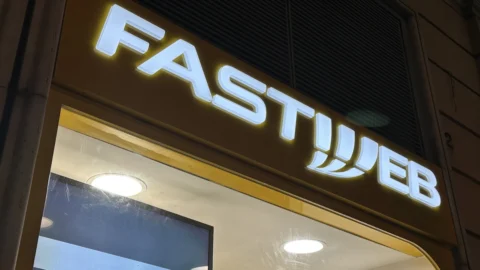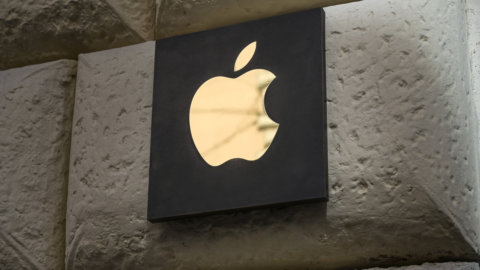Slightly declining start for the Milan Stock Exchange, which leaves 0,7% in the field half an hour after opening. While the spread travels around 500, the ten-year yields have dropped below the infamous 7% quota, to 6,83%.
Mario Monti's government was awarded in the Senate by a Bulgarian majority. The gap between the Italian and Spanish spreads has narrowed considerably. Meanwhile, the Merkel-Sarkozy duo extend their consultations to super Mario: by now it is clear that the problem in Europe is not just Italy. But unfortunately in finance the saying does not apply "common sickness means joy”. Indeed, the half-flop of the Spanish auction (only 3,5 billion Bonos placed against the 4 expected) has triggered very strong tensions both in Paris and in Italy. Only in the evening did the Italian Btp/Bund spread drop to 494 points (against 530) while the Spanish spread fell to 459 (against 502). French Oats, for the first time, broke through the 200 bps dam towards the bund in the morning and then dropped to 179 bps. The umpteenth alert from the rating agencies does not help to ease the tension: Fitch said that if Italian rates remain at these levels for an extended period (we don't know how long) the public debt risks becoming unsustainable. In the face of these messages, the stability of the share lists is almost heroic, despite some signs of yielding (see Finmeccanica and Fondiaria). The FtseMib index of Piazza Affari closed the session down by 1,4%. The London Stock Exchange lost 1,6%, Paris -1,8%, Frankfurt fell by 1%.
FORECAST. The climate remains uncertain both in Europe and overseas, where everyone is trying to stay away from European assets (government bonds of any color except the Bunds). There will be few daredevils who will not close their positions before the weekend, a circumstance which does not bode well for a rebound. The Monti effect, the experts say, will only really unfold in Monday's session when the team will already be at work in record time. In the meantime, fasten your seatbelts: strong turbulence is coming over the skies of Paris and Madrid. And the falling temperature both on Wall Street and in Asia does not bode well.
“EURO SPLIT IN TWO?” GM BELIEVES IT. “The crisis that is looming in Europe is much more serious than the American housing bubble”. Word of Dan Ackerson, CEO of GM, guest of the Detroit Economic Club last night. The CEO of the US group that controls Opel (again in red) added: “I wouldn't be at all surprised if the euro split into two groups with different speed. These are countries with characteristics that are too dissimilar from each other”. And so Ackerson confirmed new cuts in Opel (300 million savings, 1.600 fewer employees) after the 5,800 redundancies and 900 million (from the federal government) already made. So much for frau Angela Merkel.
NORTHERN ROCK BECOMES A VIRGIN AFTER THE CRISIS
STATE DISCOUNT IN BRANSON OF 400 MILLION
Northern Rock, the English bank famous for the photos of the kilometer-long queues of depositors frightened by crack crack, was sold yesterday by the English government to Sir Richard Branson, the owner of the Virgin group who paid it 740 million pounds. Exactly half of what the state paid to keep the institute in sight. In the event of the listing of the Branson institute, it will pay another 250 million to the Exchequer. The deadweight loss for the state is 400 million. Without calculating the unsaleable assets (22 billion pounds) parked in the bad bank in public hands. "It is the first step in freeing taxpayers from the burden of being bankers," commented Chancellor David Osborne. A step paid dearly for.
WALL STREET IN DECLINE AND UNDER SIEGE BY 99%
CHINESE MORTGAGES SCARE SHANGAI AND TOKYO
It's raining, it's raining. It continues to rain on the Wall Street area, which is besieged by protesters of Zuccotti Park who have tried in vain to enter the temple of finance. But the 99 percent people are much less afraid of the ghosts of the European crisis. The Standard & Poor's 500 index ends up down by 1,68%, worse than the Dow Jones -1,13 but better than the Nasdaq -1,98%. All distorted by the computer blackout in the hour before closing. Blame the sovereign debt crisis but also of the approaching conclusion of the work of the bipartisan congressional commission which must find an agreement on the cuts to the US budget: the flop is obvious.
In the meantime, among American investors, concern for Europe overshadows the encouraging macroeconomic data. In Use the requests of the unemployment benefits fell to 388 from 390 thousand of the previous week (better than the forecasts which indicated 395 thousand). Good news from construction: building permits increased to 653 in October (603 forecast). The data on the start of new construction sites was also positive.
Bitter closing of the week also for Asian price lists. The Nikkei 225 falls by 1,17%, the Hang Seng of Hong Kong is worse -1,89%. Complicating the picture of the Chinese Stock Exchanges is the belief that the fall in real estate prices (steeply falling in 33 cities out of 70) raises major doubts about the solvency of mortgages generously granted by banks.
FONSAI LANDSLIDE AFTER S&P REPORT
STILL A PROBLEM FOR UNICREDIT
Among the banks, Intesa fell by 2,9%, MontePaschi -1,6%, Unicredit limited the decrease to -0,6%. But it is not a lucky period for Unicredit's subsidiaries. After the abrupt cleanup operation announced last Monday, Federico Ghizzoni will soon have to worry about the value of Fondiaria-Sai at this rate. Yesterday too the company suffered a sharp decline - 6,4% (the subsidiary Milano Assicurazioni -6,35) still penalized by last Tuesday's rating cut by S&P, which does not exclude that the group could record further losses in the fourth quarter which could exceed current estimates with a consequent deterioration of the group's capitalization and solvency position. The company replied with a press release in which it reiterated that it is working to strengthen its assets through the sale of some assets and that it aims to improve ordinary management to bring the solvency margin back to 120%.
BPM, BONOMI HAS ALREADY RISE TO 6,38%
FINAL WITH THRILL FOR THE RISE
The operation on the capital of Bpm closes today. And the first gossip emerges on the level of the unopted maxi-increase carried out in the worst market conditions (and not only) to which the downgrading of Moody's has contributed in recent days. It seems obvious that the guarantee consortium should take action, despite the support of Investindustrial, destined to rise up to 9,9% (yesterday it reached 6,38%) and the arrival in the hard core of families of ancient crest, like the Riccis and the Braccos. But it seems very unlikely that any bondholder will decide to trigger the conversion of its securities into shares given the strike price of 2,71 euros, i.e. 9 times the current value of the security also placed at "retail" despite specific prohibitions in this regard.
UNDERSTANDING, THE LIST OF CANDIDATES IS EXTENDED
A DECISIVE WEEKEND FOR THE AFTER PLAIN
The list of possible successors of Corrado Passera in Banca Intesa he stretches, at least to read the newspapers: Pietro Modiano (yesterday very popular in the bank); Vittorio Colao, who announced that he has just renewed his contract with Vodafone; Giampiero Maioli of Carparma; Fabio Galia CEO of Bnl; Giampiero Auletta Armenise, ex Ubi; the Bazolian Victor Massiah of Ubi. The name of Andrea Guerra also appears, at Luxottica. In short, no one has an idea of what Giovanni Bazoli really thinks, to whom, by decision of the great associates of Turin and Milan (yesterday Sister Giuliana met Giuseppe Guzzetti), the arduous choice belongs.
FINMECCANICA. THE CLEANINGS ARE NOT FINISHED
THE DECLINE IN US CRUDE IS GOOD FOR SARAS
Even the landslide of Finmeccanica does not stop, down by 4,1% to its lowest level since 1997. 3,31 euros, on the lows of 1997. Since the quarterly shock of two days ago, depressed by 753 million write-downs, the stock has lost 18% in three sessions. But analysts are convinced that that's not all: further write-downs of around 1 billion euro are expected for the next quarter.
Mediaset -3,2% also suffered today after resignation of Silvio Berlusconi as premier. The construction sector contrasted, with Buzzi down by 5,8% and Impregilo +0,3%. Among the minor stocks, the ordeal of Prelios continues, down by 9,6%.
The gap between the price of a barrel of WTI crude oil and Brent, which had reached 10 dollars in recent months, has narrowed to less than 28 dollars, thanks to the Libyan crisis. The rise in WTI and the partial closure of the Brent-WTI differential significantly reduce the competitive advantage of American refineries in the Midwest, which have benefited from extremely favorable supply costs in recent months. Finally some good news for Saras and Erg.





